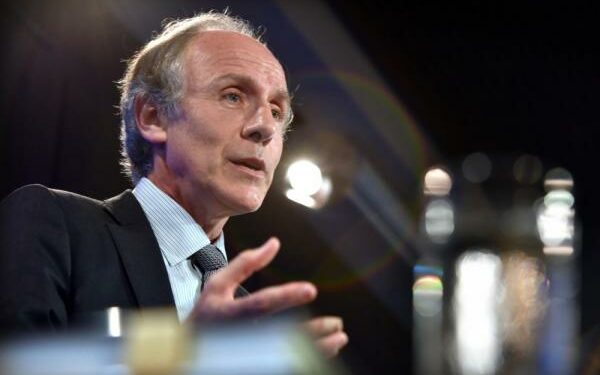Australia should incentivise increased use of battery storage technology as part of moves to improve energy security, boost clean power generation and avoid major power outages, according to a new energy policy blueprint.
The ‘Independent Review into the Future Security of the National Electricity Market’, led by Australia’s chief scientist Dr Alan Finkel (pictured), said the federal Government should consider regulatory reforms that could “reward” consumers and others who invest in battery storage systems.
Australia’s Government asked Finkel to carry out a wide-ranging review of energy policies following last year’s state-wide power blackout in South Australia.
According to Finkel’s report: “Battery storage is poised to be the next major consumer-driven deployment of energy technology.” However, the report said: “The potential for batteries to become widespread in Australia depends both on ongoing innovation in technology and changes to market mechanisms to reward investment.”
“New approaches to aggregate and coordinate the efficient use of thousands of small-scale battery storage systems will be needed to derive the full value of the various services they can provide,” the report said.
“It is also important that safety requirements are updated so that they remain appropriate for new technologies such as battery storage,” the report said. “In its recent report on policy and regulatory reforms to unlock the potential of energy storage in Australia, the Clean Energy Council (CEC) notes that there is currently no legally enforceable Australian standard for the safety of lithium-ion batteries and no requirement that consumers use an accredited installer for the installation of battery storage devices.”
CEC chief executive Kane Thornton said: “The chief scientist clearly showed that a suite of clean energy technologies supported by battery technology can ensure a secure energy system into the future. Substantial cost reductions this decade show these solutions can be delivered to Australian power consumers while minimising costs.”
Thornton said: “It will also be crucial to encourage innovation to increase the dispatchability of proven renewable energy technologies like wind and solar, integrating energy storage and exploring opportunities for increasing the role for hydro, bioenergy and solar thermal.”
A statement issued on behalf of Australian prime minister Malcolm Turnbull said the Government is “continuing to examine Finkel’s report with the care it deserves”.












